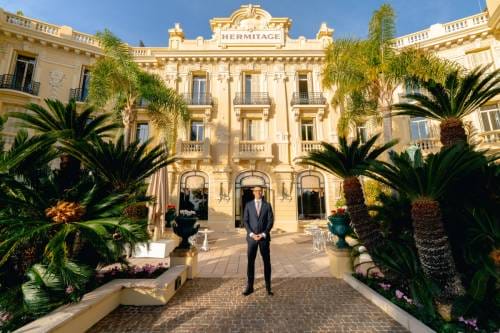A commitment of a plastic-free Mediterranean Sea is now possible and real. The influence of Humans on Nature is undoubtedly more and more impactful and plastic pollution is on the tip of the ‘iceberg’ undermining the balance of all ecosystems with special regard to the marine environment. Since 2015, Beyond Plastic Med Initiative – BeMed, by the will of H.S.H. Prince Albert II of Monaco, has being acting as a key player in encouraging new solutions based on research and innovation to create a common vision in the Mediterranean region.

This engagement is shared by Tara Ocean Foundation, Surfrider Europe Foundation, Mava Foundation together with highly specialised centres for scientific studies. On the 30th November 2020, early afternoon, a targeted meeting held at the Yacht Club de Monaco put the issue at stake launching a new ‘Collège Entreprise BeMed’ (BeMed Corporate Panel). This innovative partnership among companies of all sizes, NGOs and researchers in the field of marine biology wants to lead to concrete and easily applicable solutions to reduce plastic in its life cycle through a path in stages right from next year.

The Mediterranean Sea, almost enclosed, has the dubious distinction of being the most polluted sea globally with a concentration of over 3,000 billion of micro-plastic particles. Piled up in ocean gyres, fragmented into a thousand pieces, this plastic material can affect the health and wellbeing of most of marina wildlife by intoxication and even lead to death by suffocation. Moreover, it easily enters the food chain of every living creature including zooplankton, key to life, and Human Beings.
“Almost everyone is now convinced that plastics dispersed in the marine environment cause a series of serious issues and BeMed has soon shifted its focus from a purely environmental dimension to economic, touristic and health aspects considering negative impacts resulting from marine litter”, highlighted H.E. Bernard Fautrier, President of BeMed – “the fight against plastic pollution is on the agenda this week and will be the main theme of the International Symposium Health and the Ocean held by Prince Albert II of Monaco in the next few days” – added the Minister Plenipontetiary. BeMed started from these assumptions to promote awareness-raising actions through a set of relevant local projects involving civil communities living on the shores of the Mediterranean. In five years the value of financing amounted to 1 million 300 euros.

“In view of next steps, we realized that it was essential to involve a greater number of stakeholders, notably producers and users, through a targeted Companies’ Club at the service of communities and the economic field with the aim of reducing plastic impact”, concluded Bernard Fautrier.
“In order to put a stop on plastic pollution we need to reduce its production at the source by removing unnecessary plastic components both on consumer and corporate size as well as rethinking the use of essential plastics at each stage of its life: extraction of material, production, distribution, use and end-of-life”, underlined Philippe Mondielli, Scientific Director at Prince Albert II of Monaco Foundation – “putting in contact all companies that work in the supply chain is crucial to reduce the circulation of plastic material by pushing recycling methods, for example”, he added.

“BeMed is the action that responds to finding solutions in an integral way by participation of all interested parties: strength to network, concrete steps and collaboration throughout the Mediterranean are major added values”, underlined Antonio Troya, Director of UICN Centre for Mediterranean Cooperation, strongly involved in BeMed.

“How can we change for rising to the challenge within BeMed? Cleaning oceans and shores is certainly educational but is not conclusive; we have to focus also on the flux of plastic material considering that short-term choices have a long-term effect, as the current health emergency proves”, underlined Romain Troublé, Executive Director of Tara Ocean Foundation – “NGOs and people of science must take the floor to give the public a good information trying to be as objective and factual as possible by pursuing ambitious targets that can make the difference like the recent French no-waste law witnessed”.

Thus, identifying how science can help the business world in the fight against plastic pollution is one of the leading targets of BeMed. “Our goal is to foster a ‘plastic transition’ providing the Panel with the support of experts focused on synthesizing new bioplastics and reusing plastic before being a waste”, pointed out Jean–François Ghiglione, Director of Research at CNRS – Laboratory of Microbial Oceanography in Banyuls. Alerting to pollution conditions is a pillar in protecting marine biodiversity for the benefit of all living beings.

“The spread of the pandemic increased the demand of packaging of 20-30% given that a plastic-boxed product is more hygienic; on the contrary paper is much safer since virus resists less on this surface”, stressed the Research Director by adding “according to recent studies, if we do nothing we will have three times the amount of plastic by 2040; by contrast, if we apply the current knowledge we can reduce plastic pollution by eighty percent”.

This gives hope and must encourage us to act immediately for a plastic-free challenge. BeMed has just given the go-ahead!









